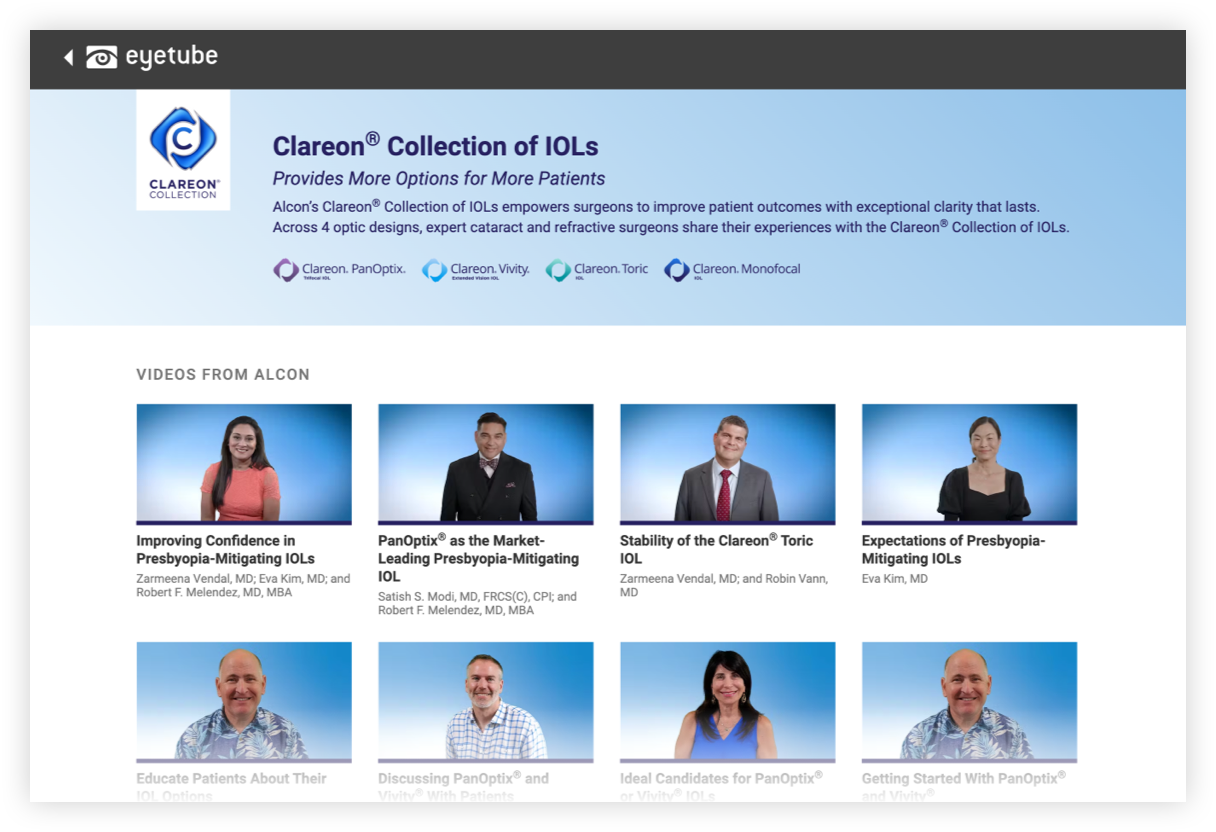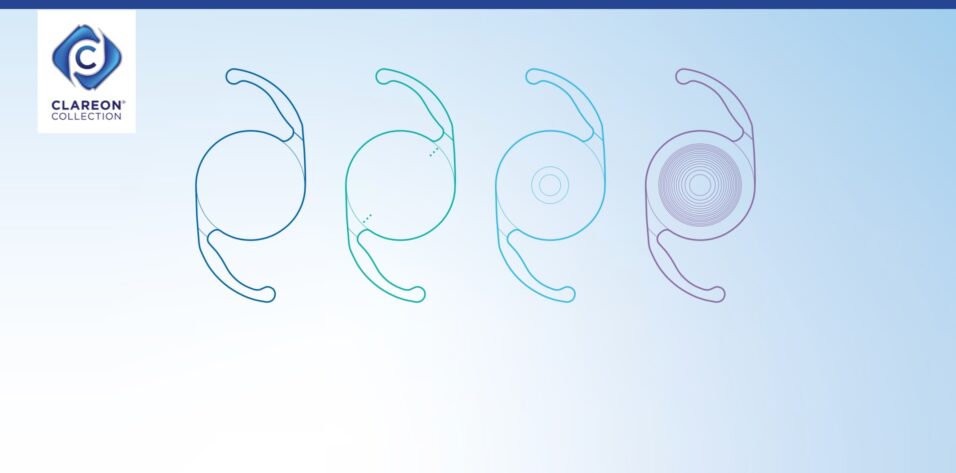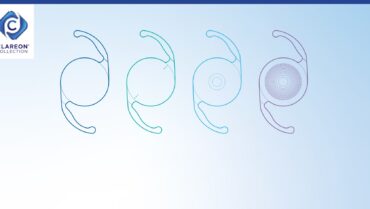Brian Shafer, MD, knows that, when doing high volume cataract surgery, it’s essential that the surgeon and team develop comfort with the material and the lens. His secret weapon? The Clareon® IOL.
What I’ve noticed with the Clareon® IOL is how quickly we can get the lens into position,1 get the viscoelastic out of the eye, and finish the case.


Having the entire portfolio of Alcon lenses on the Clareon® platform allows our patients to achieve great quality of vision2 and excellent care each time.


It says a lot about a company when they take feedback about a product like AcrySof that’s already so good and still seek to make it better. AcrySof worked well, but Clareon® takes it to the next level.


See future issues and “Clareon® Collection of IOLs” on Eyetube to hear from more surgeons.

Important Product Information – Clareon™ Aspheric Hydrophobic Acrylic IOL with the AutonoMe™ Automated Pre-loaded Delivery System
CAUTION: Federal law restricts this device to sale by or on the order of a physician.
The Clareon™ Aspheric Hydrophobic Acrylic Intraocular Lens (IOL) is indicated for primary implantation in the capsular bag in the posterior chamber of the eye for the visual correction of aphakia in adult patients in whom a cataractous lens has been removed.
WARNINGS/PRECAUTIONS:
The Clareon™ IOL is intended for implantation in the capsular bag only. Physicians considering lens implantation under any of the following circumstances should weigh the potential risk/benefit ratio: Patients in whom the posterior capsule is ruptured, zonules are damaged, or primary posterior capsulotomy is planned.
DO NOT re-sterilize the Clareon™ IOL or the AutonoMe™ Delivery System by any method. DO NOT implant the IOL if the sterility has been compromised or if the sterile package has been unintentionally opened before use. DO NOT reuse the Clareon™ IOL or AutonoMe™ Delivery System. The device is for single use only.
The safety and effectiveness of the Clareon™ IOL has not been substantiated in clinical trials in patients with certain pre-existing conditions and/or intraoperative conditions (listed in Tables 4 and 5 of the Directions for Use).
As with any surgical procedure, there is risk involved. Potential complications accompanying cataract and/or IOL implantation surgery may include, but are not limited to, the following: lens epithelial cell on-growth, corneal endothelial cell damage, infection (endophthalmitis), toxic anterior segment syndrome (TASS), retinal detachment, vitritis, cystoid macular edema, corneal edema, pupillary block, cyclitic membrane, iris prolapse, hypopyon, anterior uveitis, hyphema, pigment dispersion, posterior capsule opacification, transient or persistent glaucoma, and secondary surgical interventions. Secondary surgical interventions include, but are not limited to: lens repositioning, lens replacement, vitreous aspiration or iridectomy for pupillary block, wound leak repair, and retinal detachment repair.
ATTENTION: Refer to the Directions for Use labeling for a complete list of indications, warnings and precautions.
1. Clareon Toric Aspheric Hydrophobic Acrylic IOL with the AutonoMe DFU
2. Clareon IOL Aspheric Hydrophobic Acrylic IOL Monofocal DFU
© 2023 Alcon Inc. 12/23 US-CLV-2300020
Clareon trademark information. All other brand/product names are the trademarks of their respective owners.







